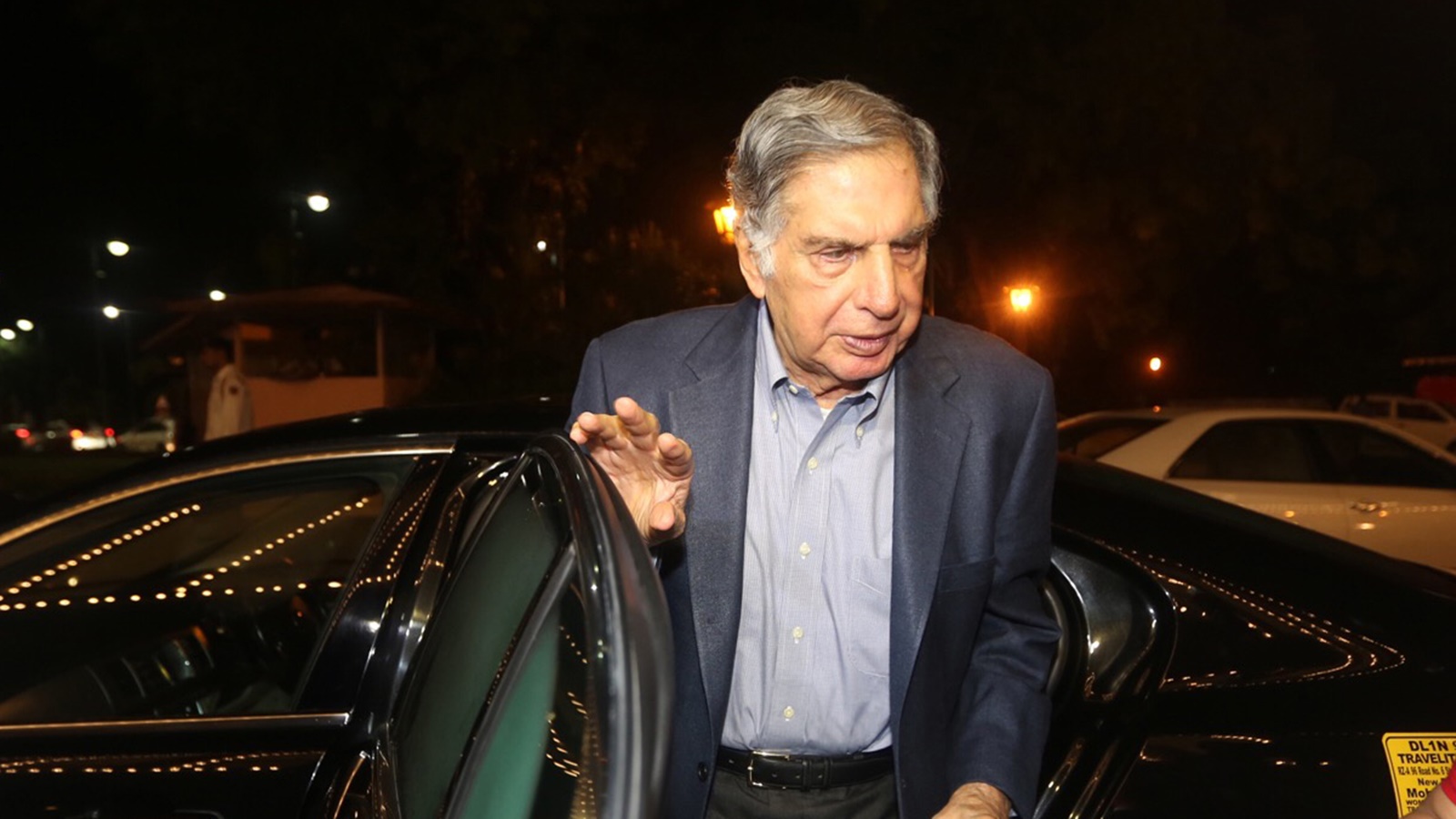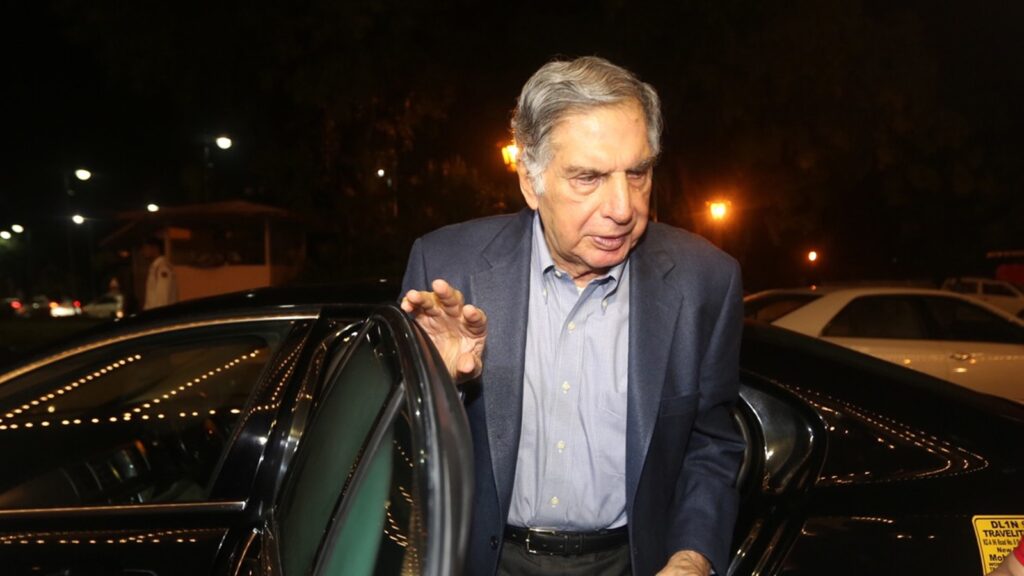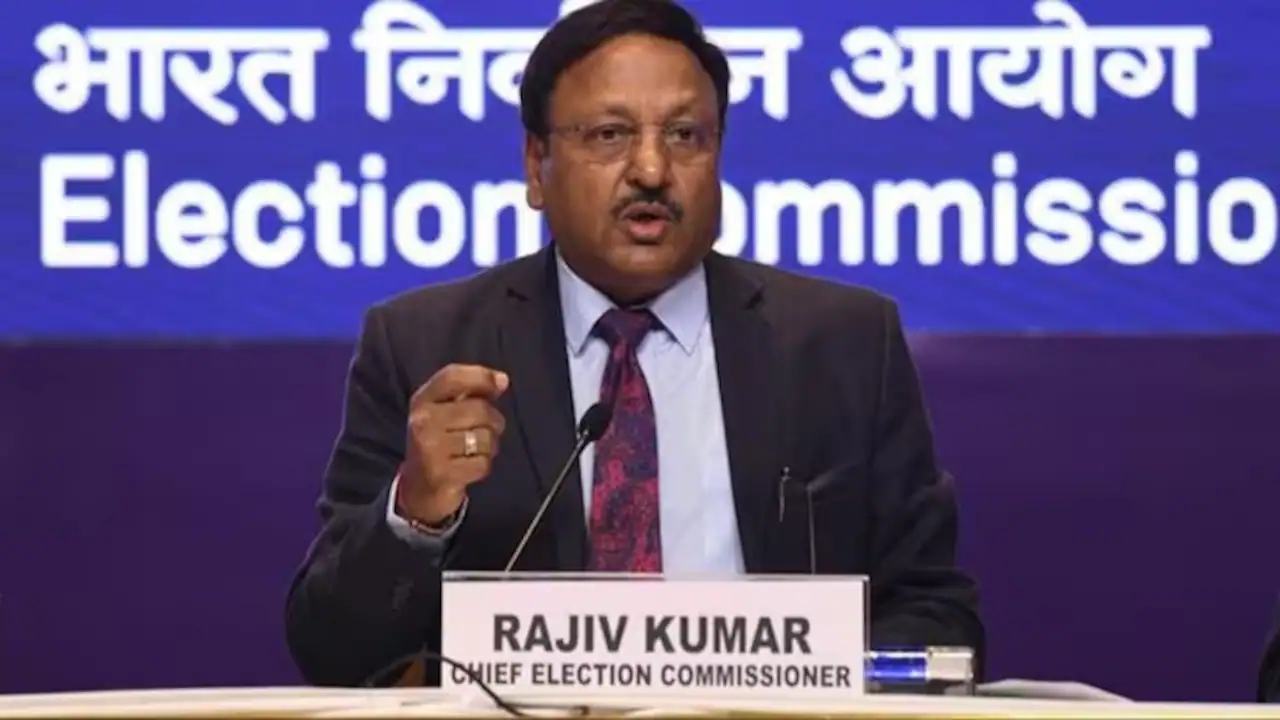Ratan Tata: The Visionary Leader, Humble Philanthropist, and Animal Lover Who Left a Lasting Legacy

Ratan Tata, the former chairman of Tata Group, is remembered as one of India’s greatest business leaders. Born on December 28, 1937, Ratan Tata took over the leadership of Tata Group in 1991, transforming it into a global powerhouse. His vision for India, his humility, his love for animals, and his dedication to philanthropy made him an icon not just in the corporate world but also in the hearts of millions of people.
In this article, we explore Ratan Tata’s most significant achievements, the values he embodied, his love for animals, and how his vision continues to shape India.

The Early Life and Rise to Leadership
Ratan Tata was born into the prominent Tata family, known for its industrial legacy. Despite his privileged background, Tata’s childhood was far from ideal. His parents separated when he was young, and he was primarily raised by his grandmother, Lady Navajbai Tata. Ratan Tata pursued his education at Cornell University, studying architecture and structural engineering, and later attended the Harvard Business School.
He joined Tata Group in 1961, starting his career on the shop floor of Tata Steel, shoveling limestone and handling the blast furnace. This hands-on experience shaped his understanding of the challenges faced by workers and gave him a unique perspective on leadership. He gradually rose through the ranks and, in 1991, succeeded J.R.D. Tata as chairman of Tata Sons, marking the beginning of a new era for the conglomerate.
Transforming Tata Group into a Global Powerhouse
Under Ratan Tata’s leadership, Tata Group underwent a significant transformation. He focused on modernization, innovation, and expanding the company’s global footprint. Some of his most notable achievements include:
Global Acquisitions
Ratan Tata led Tata Group through a series of high-profile acquisitions that put the company on the global map. The acquisition of Tetley Tea in 2000, Corus Steel in 2007, and Jaguar Land Rover in 2008 were monumental moves that showcased Tata Group’s ambition and capability. These acquisitions helped establish Tata as a global brand and diversified the company’s portfolio across various sectors, including automotive, steel, and consumer goods.
Launch of Tata Nano
One of Ratan Tata’s most ambitious projects was the launch of the Tata Nano in 2008, often referred to as the “people’s car.” Priced at around $2,000, the Nano was the world’s cheapest car, aimed at making car ownership accessible to millions of Indian families. Although the Nano did not achieve commercial success, it remains a testament to Tata’s vision of providing affordable mobility to the masses.
However, the journey of Tata Nano was not without challenges. Despite the noble intention behind it, the Nano faced significant hurdles. Many people viewed the car as being too cheap, which led to it being perceived as low-quality. Additionally, issues with production facilities, such as the protests over land acquisition in Singur, West Bengal, forced Tata to shift the manufacturing plant to Gujarat. These setbacks, combined with insufficient consumer interest, ultimately led to the Nano’s failure in the market. Ratan Tata often expressed his disappointment that the Nano did not succeed as intended, as he truly believed in its potential to transform transportation for Indian families.
Expanding Tata Consultancy Services (TCS)
Ratan Tata also played a pivotal role in expanding Tata Consultancy Services (TCS), which became one of the world’s largest IT services companies under his leadership. Today, TCS is a major player in the global IT industry, contributing significantly to India’s reputation as an IT hub.
Taj Hotels and Indian Hospitality
Ratan Tata’s leadership was instrumental in expanding the Taj Group of Hotels, making it synonymous with luxury and Indian hospitality. The Taj Mahal Palace Hotel in Mumbai, which faced a tragic terrorist attack in 2008, became a symbol of resilience. Tata’s compassionate response to the attack, where he ensured that every affected employee and their family received support, further solidified his image as a caring leader.
A Humble Leader with a Heart of Gold
Despite his immense success, Ratan Tata remained humble and approachable. He was known for his simplicity, often seen driving himself to work in a Tata car without the fanfare that usually surrounds business tycoons. His humility extended to his interactions with employees, whom he treated with respect and empathy, regardless of their position in the company.
Tata’s humility was evident when he visited the families of employees affected by the 26/11 Mumbai attacks. He personally ensured that all those impacted received support, and he visited hospitals to meet the injured. This compassionate approach earned him admiration not just within Tata Group but across the country.
Ratan Tata’s Love for Animals
Ratan Tata’s love for animals was well-known. He was an advocate for animal welfare and frequently used his influence to support animal rights. Tata was known to rescue stray dogs and provide them with shelter. The headquarters of Tata Group in Mumbai, Bombay House, has a dedicated space for stray dogs, a reflection of Tata’s affection for animals.
During the renovation of Bombay House in 2018, Tata ensured that a kennel was built to house the stray dogs that had made the building their home. This act of kindness highlighted his deep empathy for all living beings. He often shared stories and pictures of animals on his social media, using his platform to raise awareness about animal welfare issues.
Philanthropy and Vision for India
Ratan Tata’s contributions went far beyond the corporate world. He was deeply committed to philanthropy, and under his leadership, Tata Group continued its legacy of giving back to society. Around 66% of Tata Sons is owned by charitable trusts, and the profits are used to fund various initiatives in education, healthcare, and rural development.
Education Initiatives
Tata was a strong advocate for education and played a key role in establishing institutions like the Tata Institute of Social Sciences (TISS) and the Tata Medical Center in Kolkata. He also contributed to numerous scholarships for Indian students to study abroad, believing that education was the key to India’s progress.
Healthcare Contributions
Ratan Tata was instrumental in funding healthcare initiatives across India. The Tata Memorial Hospital in Mumbai, which specializes in cancer treatment, has provided affordable healthcare to thousands of patients. Tata’s contributions to healthcare were driven by his belief that quality medical care should be accessible to all, regardless of their financial status.
Rural Development and Water Purification
Ratan Tata also focused on rural development and improving the quality of life for people in India’s villages. He supported initiatives aimed at providing clean drinking water, sanitation, and infrastructure development in rural areas. Tata Swach, an affordable water purifier, was launched to ensure that even the poorest households had access to clean water.
Ratan Tata’s Vision for India
Ratan Tata has always believed in the potential of India and its people. He envisioned an India that was self-reliant, innovative, and inclusive. His efforts to modernize Tata Group were driven by a desire to see Indian companies compete on the global stage. He often spoke about the importance of ethical leadership, integrity, and giving back to society.
Tata was also a mentor to many young entrepreneurs, investing in startups and encouraging innovation. He invested in several promising ventures, including Ola, Paytm, and UrbanClap, showcasing his belief in the power of young Indian minds to drive the country forward.
Legacy and Impact
Ratan Tata’s legacy is not just limited to his business achievements; it is reflected in the lives he touched, the causes he championed, and the inspiration he provided to millions. He showed that business success and compassion can go hand in hand. His leadership style, marked by humility and a genuine concern for people, set a benchmark for what corporate leaders could aspire to be.
Even after retiring as chairman of Tata Sons in 2012, Ratan Tata remained actively involved in philanthropy and mentoring. He continued to be a guiding force for Tata Group and an inspiration for the next generation of leaders.
Ratan Tata’s life is a testament to the idea that true success lies not just in wealth or power, but in the positive difference one can make in the world. His vision for an inclusive and self-reliant India, his love for animals, and his dedication to improving the lives of others will continue to inspire generations to come.


